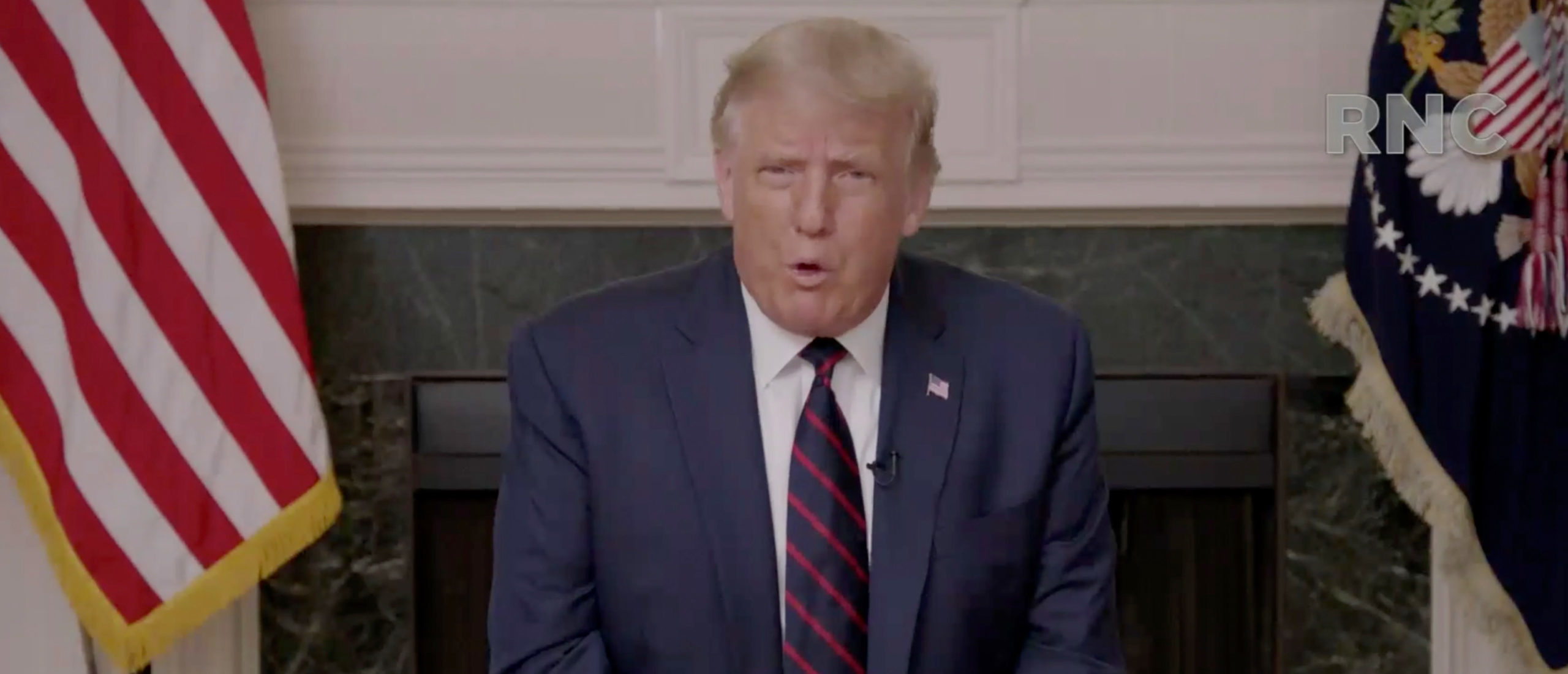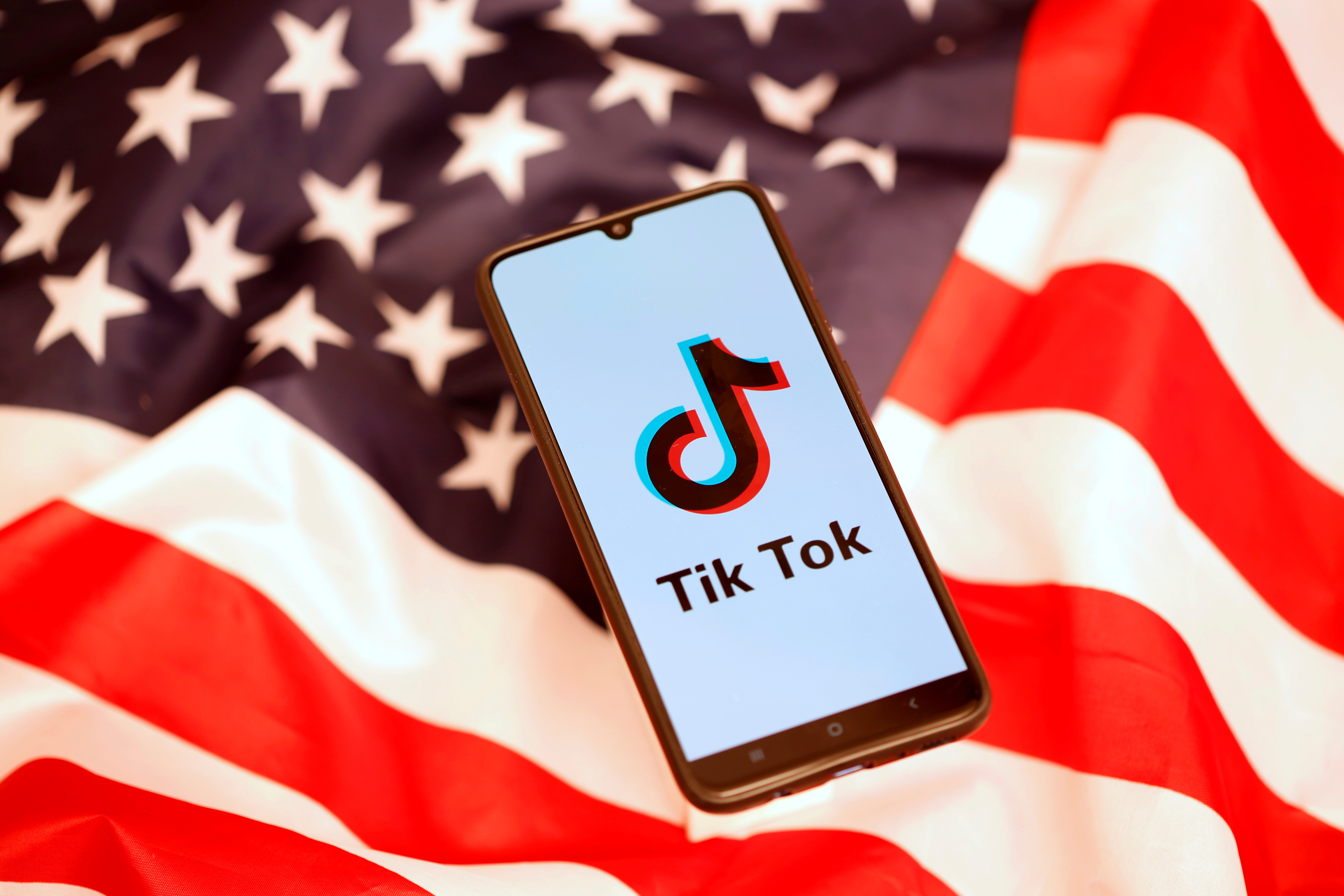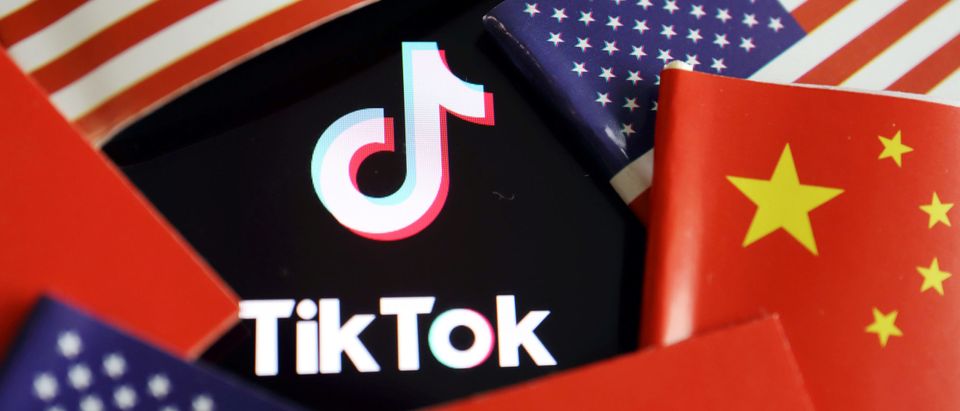- TikTok sued the Trump administration Monday for allegedly violating the company’s constitutional rights.
- The app simply had “no choice” but to sue President Donald Trump over his executive order banning the app, TikTok explained in a blog post Monday. American jobs are also on the line, according to TikTok’s statement.
- Trump’s Aug. 6 order banning the Chinese-owned app was politically motivated, according to TikTok.
TikTok laid out in a blog post Monday afternoon why the Chinese-owned application is suing the Trump administration after the president moved to ban the platform over national security concerns.
The company behind the popular video sharing app filed the lawsuit Monday, alleging that President Donald Trump’s decision to ban the app after 90 days was not made with national security concerns in mind. TikTok laid out many of the app’s primary legal complaints in a blog post claiming the ban violates the company’s constitutional rights.
“[W]e feel we have no choice but to take action to protect our rights, and the rights of our community and employees,” the company said. (RELATED: TikTok Threatens Legal Action Against Trump, Says Executive Order Banning The App Is Illegal)
Trump signed a pair of executive orders Aug. 6 prohibiting individuals from communicating with the social media app’s Chinese parent company, ByteDance, after 45 days. The orders bar “any transaction by any person, or with respect to any property, subject to the jurisdiction of the United States,” with ByteDance and Tencent Holdings, the parent company of WeChat.
The president extended the timeline in an Aug. 14 order, giving the app 90 days instead of 45 days for ByteDance to divest from TikTok before being banned, the Verge reported.

(Photo Courtesy of the Committee on Arrangements for the 2020 Republican National Committee via Getty Images)
The president suggested on Aug. 3 that he is amenable to the idea of Microsoft purchasing the upstart Chinese company, so long as the acquisition comes by Sept. 15. Twitter and Oracle have also expressed an interest in buying the app’s U.S. operations, media reports show. Trump also said a portion of profits from a potential sale should go to the United States Treasury.
Lawmakers and American officials believe the app is a threat to national security through its collection of user data.
Americans should download the app “only if you want your private information in the hands of the Chinese Communist Party,” U.S. Secretary of State Mike Pompeo said during a July 7 Fox News interview. Other U.S. officials and lawmakers have expressed concern that TikTok may be providing user data to Beijing officials.
TikTok use of the U.S. court system to sue Trump is an outrage, Sen. Tom Cotton of Arkansas told his Twitter followers Monday. “It’s outrageous for a tech firm ultimately under the sway of the Chinese Communist Party to wage lawfare against the American people in our courts,” he wrote.
Here are the five biggest reasons TikTok gave for filing the lawsuit:
The Ban Violates TikTok’s Due Process Rights
The president’s executive order violates the company’s due process rights under the U.S. Constitution, the company claimed in the blog, citing the legal complaint. Trump’s orders did not give TikTok notice or a chance to be heard before he signed a proclamation potentially resulting in a ban, according to the legal complaint.
“By banning TikTok with no notice or opportunity to be heard (whether before or after the fact), the executive order violates the due process protections of the Fifth Amendment,” TikTok said in the lawsuit. (RELATED: One Of Trump’s Biggest Silicon Valley Supporters Is Reportedly Involved In A Bid To Buy TikTok’s US Operations)
Trump Is Misusing Emergency Powers
The company argues the Aug. 6 orders are a “misuse” of the International Emergency Economic Powers Act (IEEPA), a law signed in 1977 permitting the president to regulate international commerce after declaring a national emergency to address a foreign threat to the U.S.
Trump’s orders are based on the IEEPA, TikTok stated.
TikTok cited an executive order Trump signed in 2019 that pertains to telecommunications companies that “store and communicate vast amounts of sensitive information, facilitate the digital economy, and support critical infrastructure and vital emergency services” for the purpose of committing “malicious cyber enabled actions.”

TikTok logo is displayed on the smartphone while standing on the U.S. flag in this illustration picture taken, November 8, 2019. REUTERS/Dado Ruvic
TikTok is neither a telecommunications company nor does it “provide the types of technology and services contemplated by the 2019 executive order,” the app said in the legal complaint. “Specifically, TikTok Inc. does not provide the hardware backbone to ‘facilitate the digital economy,’ and TikTok Inc. has no role in providing ‘critical infrastructure and vital emergency services.'”
The Move Was Politically Motivated
The Trump administration’s move comes as the president applies additional scrutiny on Chinese companies, and is politically motivated, according to the app.
“Independent national security and information security experts have criticized the political nature of this executive order, and expressed doubt as to whether its stated national security objective is genuine…,” the complaint said.
In addition, Trump’s demands for payments to the U.S Treasury “have no relationship to any conceivable national security concern and serve only to underscore that Defendants failed to provide Plaintiffs with the due process required by law,” the legal complaint noted.
Trump Ignored TikTok’s Attempts To Address Concerns
TikTok went to substantial lengths to address the president’s national security concerns, according to the lawsuit. The app provided the administration with documentation about its security practices during ByteDance’s 2017 acquisition of Musical.ly, which eventually became TikTok.
The company has taken several measures to protect privacy security, “including by having TikTok store such data outside of China (in the United States and Singapore) and by erecting software barriers that help ensure that TikTok stores its U.S. user data separately from the user data of other ByteDance products,” TikTok said in the lawsuit.
“We Simply Have No Choice”
TikTok’s U.S. operations are on the line, as are thousands of American jobs, according to the app’s blog post.
“[T]he Executive Order threatening to bring a ban on our US operations – eliminating the creation of 10,000 American jobs and irreparably harming the millions of Americans who turn to this app for entertainment, connection, and legitimate livelihoods that are vital especially during the pandemic – we simply have no choice,” TikTok said in the blog post.
The company said it would add 10,000 jobs in the U.S. over the next three years, Axios reported in July, citing TikTok spokesman Josh Gartner. TikTok has grown from just 500 employees in January to 1,400 people as of Tuesday, Axios reported.
All content created by the Daily Caller News Foundation, an independent and nonpartisan newswire service, is available without charge to any legitimate news publisher that can provide a large audience. All republished articles must include our logo, our reporter’s byline and their DCNF affiliation. For any questions about our guidelines or partnering with us, please contact licensing@dailycallernewsfoundation.org.


